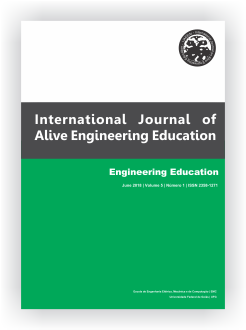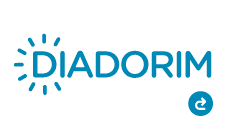Case Study: Electrical Engineering Introduction Course Using an Integrated Approach via Group Work Viability Projects
DOI:
https://doi.org/10.5216/ijaeedu.v5.62496Abstract
This paper discuss an innovative teaching methodology applied in a University sited in Minas Gerais, Brazil. The main goal is to reduce the dropout rate in Engineering Courses. The Federal University of Itajuba (UNIFEI) others freshmen students a new perspective about the Electrical Engineering course, showing them the vast possibilities it might lead them. For that, the University uses the course called Introduction to Electrical Engineering, based in the formation of groups focused in the study of the viability of Renewable Energy Sources projects. Diferently from the traditional method, where the students are merely recipients meant to be alled by the professor1 , the idea is to concede a chance for the pupils, allowing them to guide their researches and activities based on their needs. In this context, a group called Photovoltaic Application in Needy Communities
(PANC), from the 2015 class, reached at the end of the period the implantation of the group's objective: a solar system in a Basic Health Center in Itajuba (MG). The methods applied by the group are discussed in this paper.
Downloads
Pubblicato
Fascicolo
Sezione
Licenza
Copyright
The author is responsible for the following statements by submitting an article electronically in the International Journal of Alive Engineering Education (IJAEEdu):
a) States that the document in question was reviewed by an expert in English language and it is an original work and it holds the prerogative to grant the rights contained in this license. It also states that the document does not infringe, as far as it is possible to know the rights of any other person or entity.
b) If the document in question contains material which does not hold the copyright, the author states have obtained the copyright holder’s permission to grant the Universidade Federal de Goiás (UFG) the rights required by this license, and that such material whose rights are third is clearly identified and acknowledged within the text or content of the document.
c) States that the study was conducted in accordance with the ethical standards of all applicable institutional, local, national and international guidelines.
d) It also states that any person appointed as author or co-author of the document is aware of it and agrees to be so appointed.
Authorization Form
As responsible for the submission of the document, I authorize the School of Electrical, Mechanical and Computer Engineering of the Federal University of Goiás to provide the paper free of charge, through the Electronic System for Publishing Magazines UFG (SEER / UFG) or in printed form, without compensation of copyright, in accordance with Law No. 9610/98. Is allowed, reading, printing and / or download, as a promotion of the Brazilian scientific production. Any use of the work not authorized under this license or the copyright law is prohibited.



